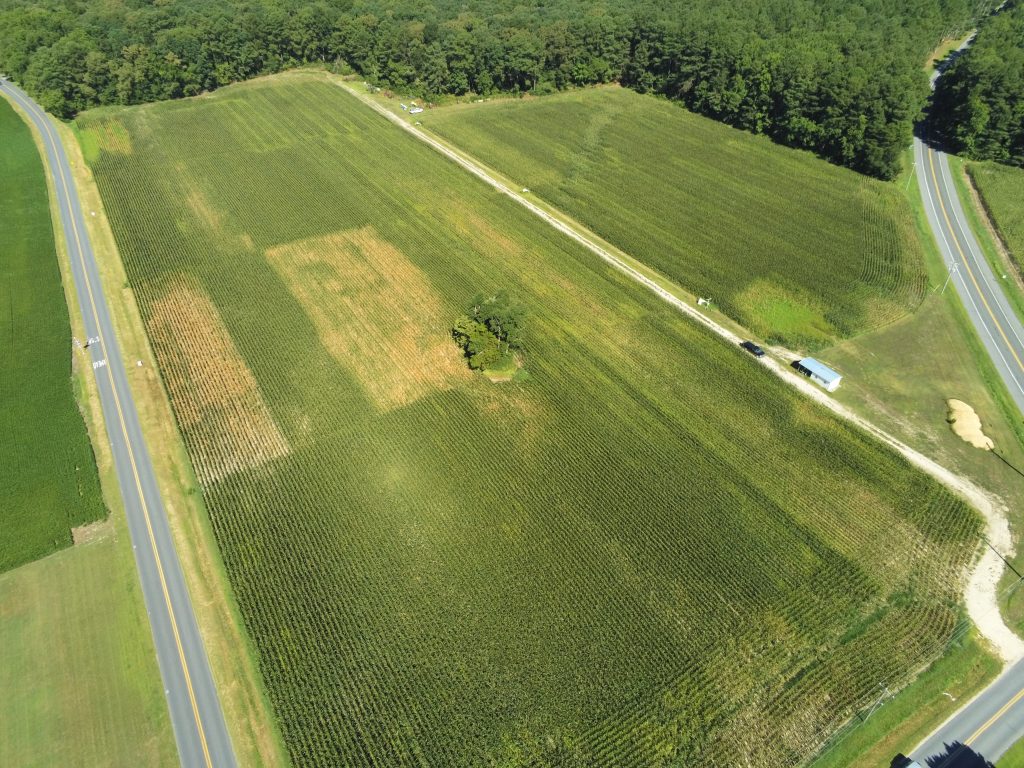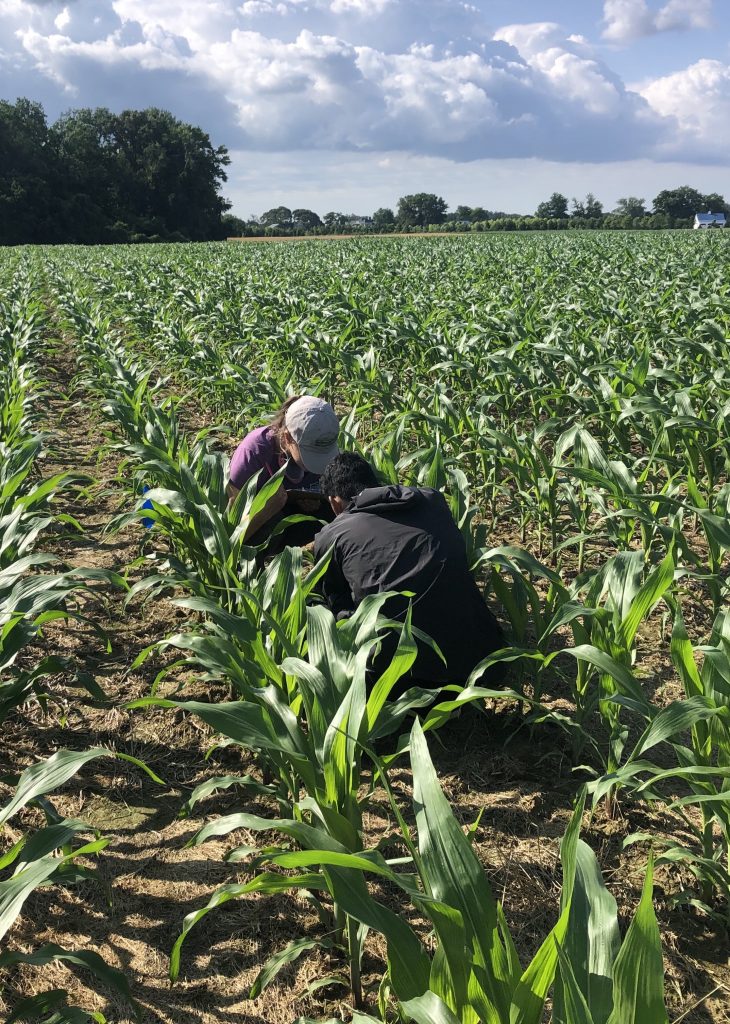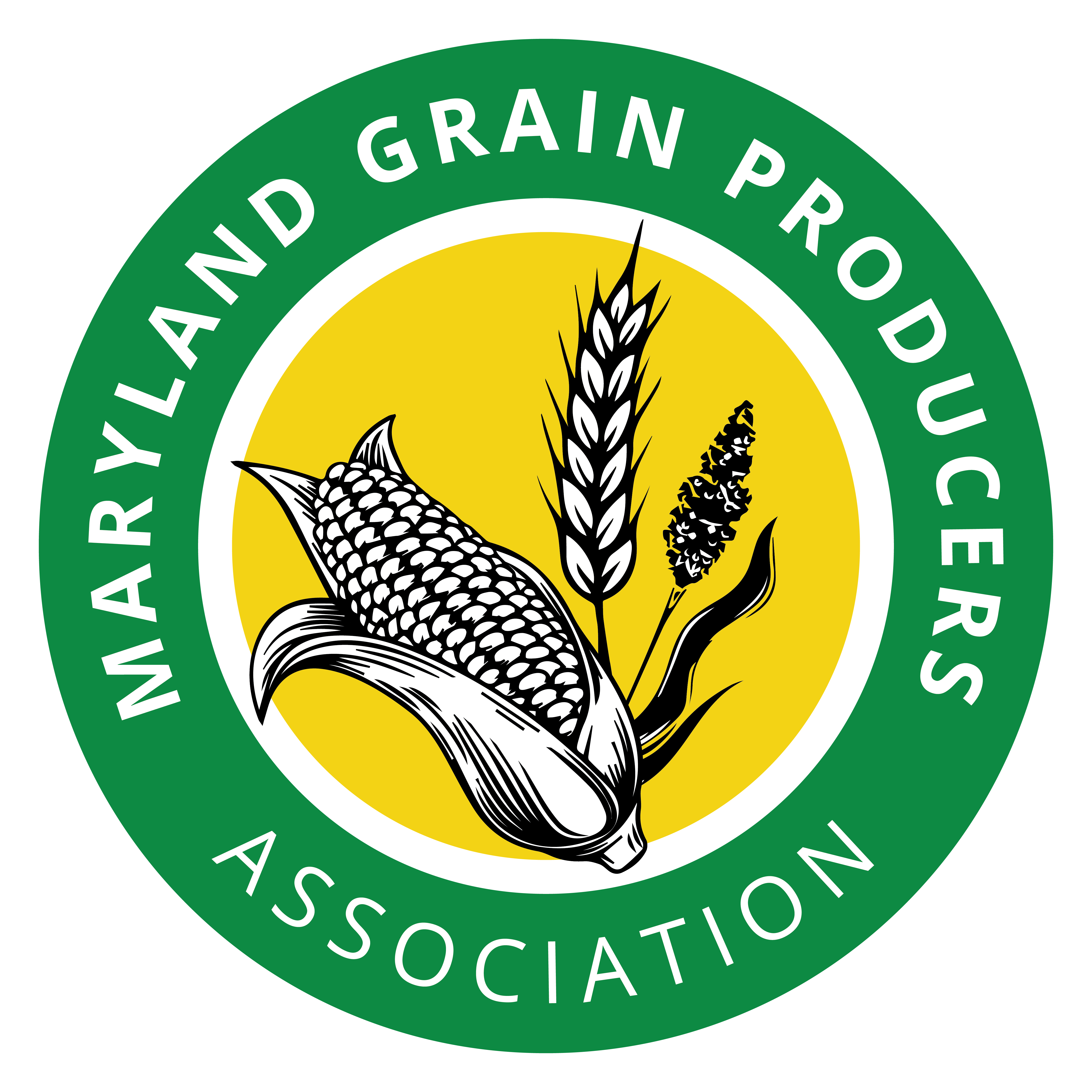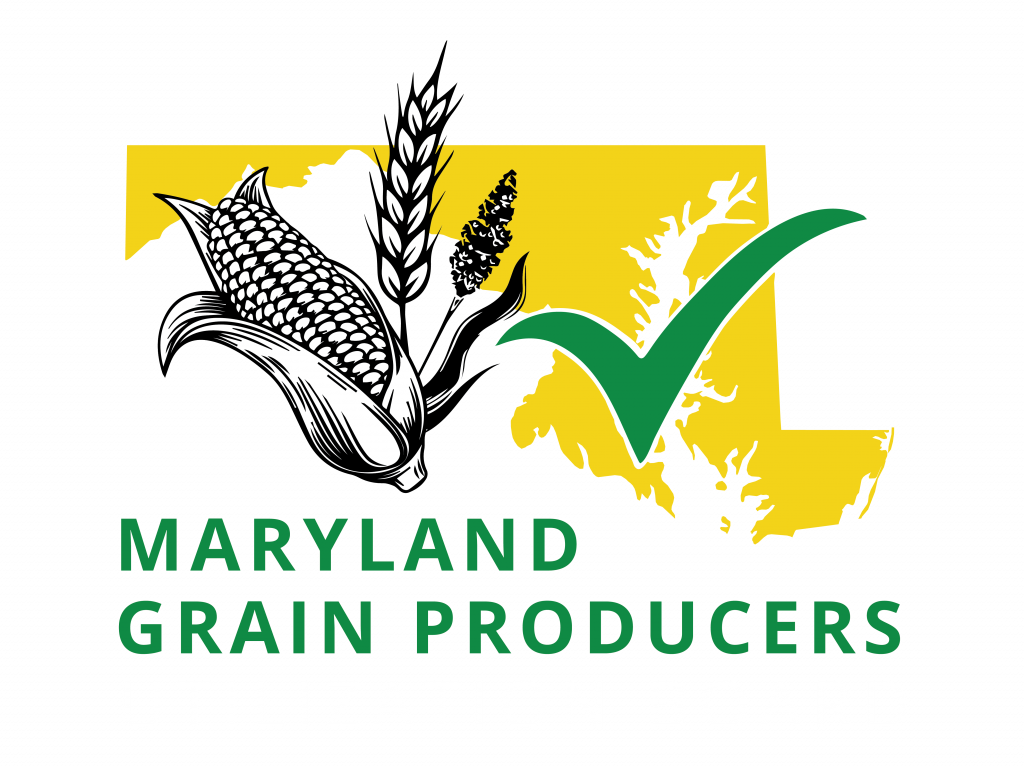In 2024, the Utilization Board Funded 17 grants at $280,532. Read about the 2023 check-off funded grants success below!
Medius.Re
Check-off dollars funded the launch and ongoing maintenance of the Medius.Re database to benefit producers across the state. This platform gives farmers the ability to analuze variety trial data for corn, wheat, and barley across time and space with their own customized criteria.
To better understand how to utilize Medius.Re check out the two support videos. For the dashboard overview, click here. For the analytics overview, click here. If you need technical assistance, you are welcome. to contact Bradley Halladay at brad@medisuag.com or by calling 717-799-9118.
Micronutrient Zinc to Enhance Yield in Corn
- Funded $12,506 in 2023.
- Researcher: Dr. Naveen K Dixit with the University of Maryland Eastern Shore.
- Micronutrient Zinc (Zn) deficiency can cause a serious decline in corn yield. Dr. Dixin applied multiple fertilizer rates of Zn at a depth of 4 inches below the soil level and 2 inches below the seed level using a strip-till machine with a liquid nutrient attachment. With one year of data, under drought/rainfed conditions, positive effects of Zn were observed on corn yield, the number of grains per cob, grain yield in the basal and apical regions of the cob, cob length, and pollen viability. The highest (168 bu/A) grain yield was observed in the 8 lbs/A Zn application and is 16% more in comparison to the control (141 bu/A). Economically it costs about $60/A and displayed an increase in yield by 28 bu/A. The total economic profit is $132.08/A by using an 8 lbs/A application of Zn. This gain does not consider the cost of labor and other resources.
Grid Sampling Soils to Improve Crop Yields

- Funded $11,890 in 2023.
- Researcher: Dr. Jarrod Miller with the University of Delaware.
- Variability in soil land landscape characteristics reduces yield response to management techniques, particularly regarding seeding rates and fertilizer additions. One method to uncover soil variability and crop response is to use precision soil sampling, including either grid or zone methods. Check-off funds helped produce 90*90 foot grid maps on the UD irrigation research farm, with initial observations uncovering management-related pH issues and field patterns in micronutrients that were not similar to each other.
- Corn nitrogen and population studies were also performed under irrigated and rainfed conditions, with irrigation boosting yields by 80 bushels under dry 2022 conditions. Nutrient uptake of N and S increased with yield, but only under irrigated parts of the field. Micronutrients could be higher in bother higher-yielding irrigated plots as well as the lowest-yielding rainfed plots, indicating that micronutrient uptake (Zn and Mn) could indicate a stressed environment.
Determine the Best Systems Approach to Managing FHB
- Funded $25,000 in 2023.
- Researcher: Dr. Nidhi Rawat with the University of Maryland.
- Project objectives are: 1) Evaluate the integrated effects of fungicide treatment and genetic resistance on FHB and DON in soft red winter wheat, with emphasis on a new combination of fungicides; and 2) Compare the efficacy of Prosaro Pro and Spharex to that of Prosaro and Miravis Ace. In October 2021, plots of wheat were replicated at two farms in Maryland. Planned fungicide sprays on resistant and susceptible wheat and barley plots at previously decided time points of flowering were done in May 2022. After 25 days of flowering, FHB severity and incidence were recorded. Harvesting was done in July and results were obtained later that month from a USDA lab. Sphaerex and Prosaro Pro were significantly effective in controlling FHB and DON content in susceptible as well as resistant varieties.
Phytoremediation of Soils with High Phosphorus
- Funded $9,619 in 2023.
- Researcher: Dr. Nicole Fiorellino with the University of Maryland
- The University of Maryland currently maintains three long-term field sites where soil test P is monitored biennially on plots that have not received P application since 2001. Further evaluation of historic soil samples has been placed on hold, although long-term grain rotation has continued. Yield data and grain nutrient concentrations are collected annually to monitor soil P drawdown and removal in a grain rotation. This is one of the only long-term evaluations of long-term soil P drawdown in the country and we hope to provide valuable solutions to growers who are managing high P soils.
State Corn Test: Benchmark Hybrids
- Funded $8,664 in 2023.
- Researcher: Dr. Nicole Firellino with the University of Maryland.
- The University of Maryland performed a statistically sound and unbiased field trial to provide producers with an unbiased corn variety comparison. This side-by-side comparison is accomplished in a randomized complete block design, replicating and randomizing corn varieties across a field. The test was successfully conducted in 2022 at five locations across Maryland. Results can be found online here.
Optimizing Early Season Insect Pest Management

- Funded $18,000 in 2022 for the third and final study.
- Researcher: Dr. Kelly Hamby with the University of Maryland.
- Ph.D. student Maria Cramer and Dr. Hamby compared two early-season insecticides and an untreated control in a three-year study replicated at three research farms across the state. Regardless of whether a Bt or non-Bt hybrid was planted, seedling pest pressure tended to be low and not yield-limiting; therefore, input costs could be reduced or eliminated without a reduction in yield. However, this low pest pressure is the result of crop rotation, regional pest suppression from Bt corn, and a history of soil insecticide use and effective weed control. As with all pest control decisions, choosing to use or not use preventative treatments should be based on knowledge of pest pressure patterns in the region as well as on your farm.
Developing Improved High Yielding Soft Red Winter Wheat
- Funded $41,344 in 2023.
- Researcher: Dr. Vijay Tiwari with the University of Maryland.
- Dr. Tiwari is leading the Maryland Small Grain Breeding Program and is focusing on three objectives to develop and improve soft red winter wheat cultivars. Check-off funds were utilized to evaluate 32 advanced MD wheat lines under the statewide yield trial at four locations across the state this past growing season. One of these Maryland lines placed fourth with a yield of 108.6 bushels per acre. Secondly, the team is speed-breeding headrows from different populations. Currently, 200 double haploids are being tested in the field for FHB resistance. For the final objective, UMD has identified 45 advanced lines that will be sent to the trials to be analyzed and later selected/licensed.
Effects of Increasing Corn Tissue Boron & Sulfur Concentrations
- Funded $9,635 in 2023.
- Researcher: Dr. Jarrod Miller with the University of Delaware.
- As anions, SO4 and B leach easily from the soil surface potentially leading to S deficiencies in grain crops. In this study, UD observed whether increasing S and B fertilizer applications separately or concurrently affected tissue N concentrations as well as overall yield. Yields ranged from 212 to 217 bushels per acre among the six treatments but no differences between the treatments were observed. This is similar to treatment effects the previous season, which just emphasizes that sulfur and boron are not lacking or driving yield in these systems.
Improving K Fertilizer Recommendations
- Funded $19,984 in 2023.
- Researchers: Dr. Nicole Fiorellino with the University of Maryland and Amy Shober with the University of Delaware.
- Corn K rate trials in two fields in Delaware and two fields in Maryland were established to provide potassium (K) correlation and calibration data to Fertilizer Recommendation Support Tool (FRST). The FRST database will provide a searchable tool for the development of regional nutrient management recommendations based on soil testing data without political and institutional biases. With only two years of data, results will be compiled and develop value as research continues.
Survey of Plant Parasitic Nematodes in Mid-Atlantic Corn
- Funded $9,053 in 2022 for the final year.
- Researcher: Dr. Alyssa Koehler with the University of Delaware.
- From 2016 to 2019, nematodes consistently ranked in the top 10 most destructive diseases of corn in the southern U.S. From the 2022 soil survey, seven nematode genera were recovered with two additional genera present at the on-farm trial site. Lance nematode was present in 58% of fields and above high thresholds in 25% of fields. No notable differences in nematode populations or final yield were observed in the on-farm strip trial investigating the use of Lumialza as a nematicide seed treatment.
Developing Improved High Yielding Winter Barley Cultivars
- Funded $12,160 in 2023.
- Researcher: Dr. Vijay Tiwari with the University of Maryland
- Continuous screening of barley germplasm to identify superior germplasm against biotic and abiotic stresses, growth parameters, quality traits, and flowering time is being completed at the University of Maryland. The team has identified 25 barley lines adapted to the Maryland environment which will be used as the parental line for making crosses. Since, Maryland has identified four excellent non-bearded barley lines, while yield evaluation is still in progress. Lastly, UMD tested seven advanced MD lines under the state tests and year-one data shows really exciting results (further testing is required for validation and promising results).
Field Evaluations of Small Grain Cultivars for Scab Resistance
- Funded $24,299 in 2023.
- Researcher: Dr. Vijay Tiwari with the University of Maryland
- On average, the total estimated value of wheat harvested in our region was over $220 million with wheat and barley combined. With that, the goal of the small grain trial center is to perform a critical evaluation of the public and experimental lines to provide robust data on the adaptability of the cultivar in the Mid-Atlantic environment, yield, diseases, and agronomic performances. This year, UMD received and tested 75 entries of wheat and 22 entries of barley across five locations across the state. Results can be found online through the Medius.Re platform, here.
Promoting Natural Suppression of Slugs
- Funded $10,808 in 2023.
- Researcher: Dr. Michael Crossley with the University of Delaware
- Check-off funds were utilized for the first time to identify potentially impactful natural enemies of slugs and develop a method to maintain slug parasitic nematodes in the lab. Last spring, UD visited 15 fields and collected 1,030 slugs and 1,745 natural enemy specimens. Of the slugs, 2.9% were found to be infected with parasitic nematodes. These are currently being maintained while research continues. Otherwise, data is continuing to develop and results will be available after some more research is completed.
Improvement and Development of Barley for Malt, Feed, and Forage
- Funded $6,000 in 2023.
- Researcher: Nicholas Santantonio with VA Polytech Institute
- This past year, breeding efforts were focused on the development and improvement of the yield potential of winter barley cultivars and a focus on the incorporation of value-added traits geared towards the development of new markets. This includes the development of dual-use malting and feed varieties that can meet either market class depending on management practices. Currently, five elite double haploid malt barley lines are being evaluated as potential release candidates, including one dual-use 6-row malt/feed barley that is being put up for release in the spring of 2023. Virginia Tech will continue to develop and evaluate new barley lines derived from crosses.
Other Funded Grants
- Dr. Nicole Fiorellino will be researching the yield impacts of late-planted wheat in Maryland. Check-off provided $8,565 in 2023 for the first year of research.
- To support on-farm research, the Utilization Board voted to fund up to $80,350 for the start-up trials coordinator. If you would be interested in doing on-farm research, please contact the Grain Producers!
- Biologicals has become a popular fertilizer. The University of Maryland will be doing unbiased research on biologicals and their enhancement to corn production. For the first year of research, $11,793 will be funded.
- For 2023, the Grain Producers provided $6,747 of funding to Dr. Hamby and Maria Cramer for research on native ground beetles and their contribution to the biocontrol of native and non-native pest slugs.
- The University of Delaware will be using $9,654 check-off dollars to look into corn planting timing effects on yield, herbivory, and nutrient uptake.
- As Corn Tar Spot has been a challenge in Pennsylva, Andy Kness will perform research on managing tar spot in Maryland for 2023 with a grant of $4,361

